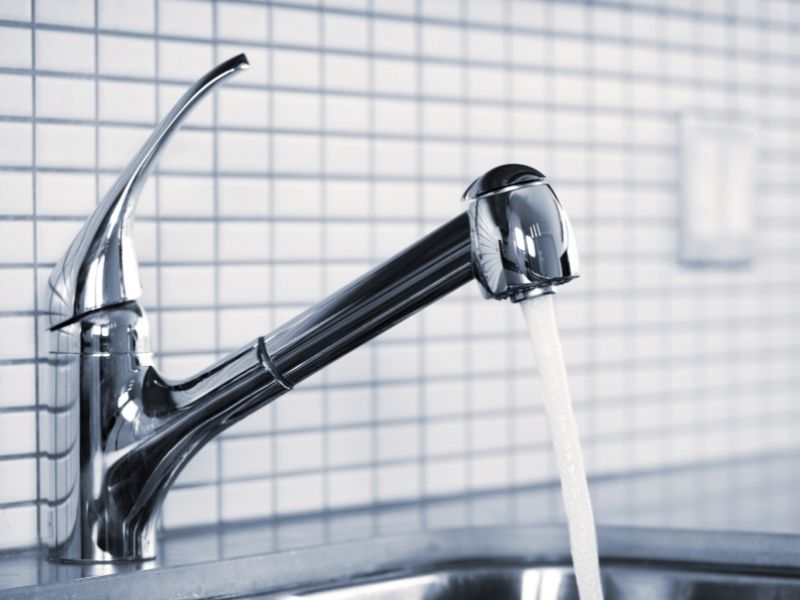Water descaling systems can reduce the hardness of your water and improve water quality. Hard water has many negative effects on both the human body and any material that it comes in contact with for a prolonged time. The minerals typically found in hard water are responsible for hard laundry, stained tubs, and sinks, dry skin and hair, funny taste and smell, etc.
Though hard water does not pose any major health risk, it is a bother mainly due to its mineral build-up tendency. This pest known as hard water can easily be removed by water descaling systems or by installing a water softener. However, water descaling systems have many benefits that make them more desirable than water softener.
This article will clear all your doubts about water descaling systems and their benefits. So if you are floating between a descaler or a softener, keep reading.
Your Guide to the Benefits of Water Descaling Systems

What is a water descaling?
Water descaling systems are methods that decreases the negative impacts of hard water. Even though it does not transform hard water into soft water, it helps lessen the adverse effects of hard water. Many studies show that by charging the minerals suspended in water, the structural conformation changes and thus prevents the water from forming scale deposits.
The process behind water descaling systems.
Hard water has a lot of mineral content (mostly iron and calcium). A water descaling system contains a water descaler that produces a magnetic field which is used to charge the particles in hard water.
Charged particles change structurally from cubic to circular and begin forming clusters. This prevents the formation of scale deposits. Charging water allows the particles inside to remain suspended in water and also helps avoid limescale buildup by significantly reducing the surface tension.
Mineral ions affect many metal surfaces such as your plumbing pipes, dishes, washing machine, and sinks. People living in areas more prone to hard water have to regularly face such problems. A water descaler could be an aspirin to your hard water headache.
Increases the efficiency of your water system.
Homeowners looking for a solution to hard water only really have two options to pick from a water descaler systems or a water softeners. Here are some benefits and why you should choose a water descaler.
To protect your domestic appliances, you need to make sure that your water does not have unusual amounts of magnesium, iron, or calcium in it. Therefore, softening the water supply becomes a critical issue.
Water descalers will increase the efficiency of your water heating system, prevent red stains on your sinks and tubs, and keep your clothes soft and comfy. This excellent efficacy is making it increasingly popular.
You pay less for maintenance.
This one-time investment of purchasing a water descaling systems will prevent your pipeline from scaling, making your plumbing system last longer and reducing any added costs that come with hard water. It also reduces the amount of money that would be used in terms of energy loss.
In fact, unlike water softeners, descaling systems do not require the use of additional water or filters to operate which makes them a decent investment.
Removes calcium content.
While water softeners tend to remove almost all of the calcium content and other minerals from hard water. This is not an issue with water descaling systems. Water descaling systems only prevent the formation of mineral residues.
As a matter of fact, no additional chemicals or salts are needed for water treatment which is not the case with water softeners. It simply does a fantastic job of preventing the formation of new scales. Interestingly, this also makes it more eco-friendly as it does not release harmful chemicals back into the water stream.
Better for the skin.
Unfortunately, your skin feels dry after using water softeners. That’s because the water is very slick, and soap particles are tough to get rid of. However, over time your skin becomes smoother after you install water descaling systems. Then, the water becomes silkier, and soap particles dissipate effortlessly. After a few months, the full benefits of water descaling systems are very obvious.
Low maintenance.
They’re simple to set up and far less expensive than water softeners. Without any plumbing, you can mount a water descaler on the pipe. Also, there are few recurring expenses or maintenance challenges.
Is it the best solution?
Numerous studies looking into the effects of the water descaler yielded conflicting results. Furthermore, it is not a comprehensive solution because it does not convert hard water to soft water. Whether you purchase a water softener or a descaler is entirely up to you. If the water isn’t too hard, a water descaler is a good option, but if it’s significantly hard, a water softener is a preferable choice.
Water descalers are effective in eliminating older scale deposits from water pipelines and storage tank walls over time. The basis for this is that charged particles transfer some of their energy to the scales that are formed, gradually breaking them down. This indicates that water descaling improves plumbing and overall water quality.
Water descalers: a pretty attractive option.
Hard water damages a lot of your home appliances which is very irritating. If the problem is not fixed then you spend a lot on maintenance, especially if the problem involves your water heating and plumbing systems.
In conclusion.
Yes, a water descaler may not exactly soften the water but it will reduce the effects of hardness so that your appliances, clothes, and hard metal surfaces can have a longer life span while also kindly treating your hair and skin.
That, along with reduced costs, makes it an investment you won’t regret. So, hop into your car, go to your nearest store to grab a water descaler without delay. If you have any questions or suggestions, we always love to hear from you in the comments below. Also below are links to more fantastic articles about ALL things DESIGN for your home or business.
Images Courtesy of Canva.
Other Posts You Might Enjoy:
What Type of Water Filtration System Do You Need?
The Impacts of Iron in Water and 6 Ways to Remove It





